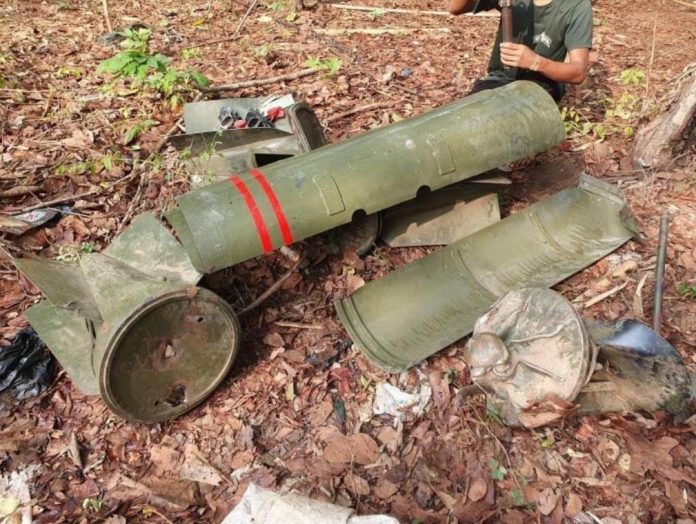FROM THE DVB NEWSROOM
An investigation by the Landmine and Cluster Munition Monitor uncovered that Burma’s armed forces have been manufacturing cluster munitions with 12 mortar projectiles that release upon impact – using steel from Thailand – in attacks since the 2021 military coup. It reviewed photos of suspected cluster munitions and claims by resistance forces to find that the Air Force has dropped cluster bombs in Chin, Karen, Karenni, and Shan states over the last 13 months.
Airstrikes using cluster munitions were documented most recently on Aug. 25 in Pekhon Township of Shan State and Myawaddy Township of Karen State. Nine were wounded in the attack. On June 6, a school in Kawkareik Township of Karen State was targeted. Last April, Mindat Township of Chin State was also targeted. Thirteen were wounded in that attack. Between Feb. 17 and March 7, airstrikes on Demoso Township of Karenni State killed seven and injured more than 20.
Under the 2008 Convention on Cluster Munitions, a cluster munition is defined as “conventional munition that is designed to disperse or release explosive submunitions each weighing less than 20 kilograms each.” Burma is not a signatory to this treaty. The Landmine and Cluster Munition Monitor states that the weapons inspected are, in fact, cluster munitions.
“Myanmar’s production and use of cluster bombs is gravely concerning as these indiscriminate weapons primarily kill and injure civilians. There can be no justification for using them,” said Dr. Yeshua Moser-Puangsuwan, a researcher with the Landmine and Cluster Munition Monitor. The group called on the international community to condemn the usage of cluster bombs and urged Naypyidaw to stop using them.



